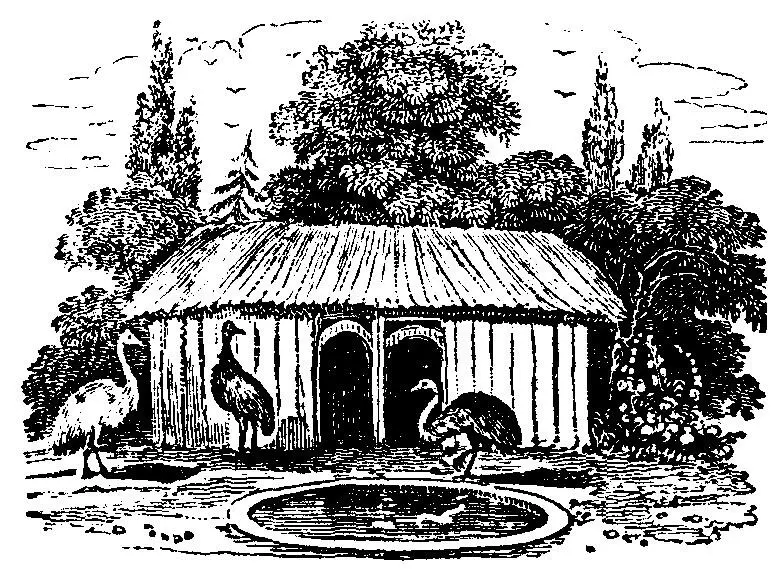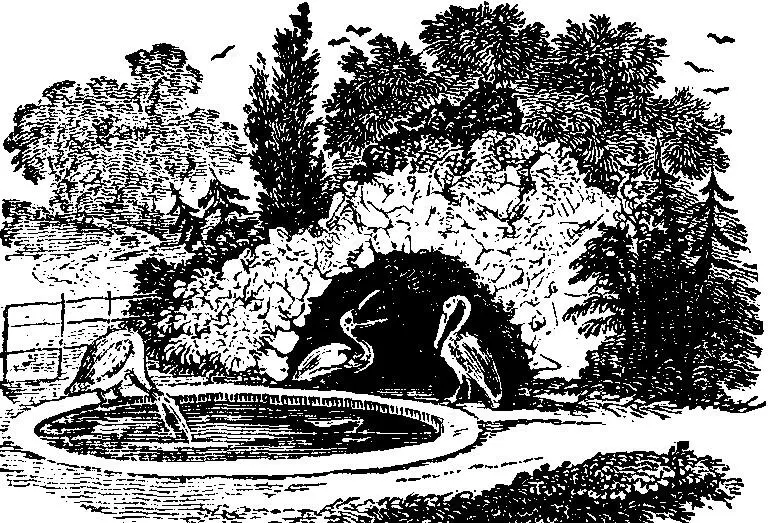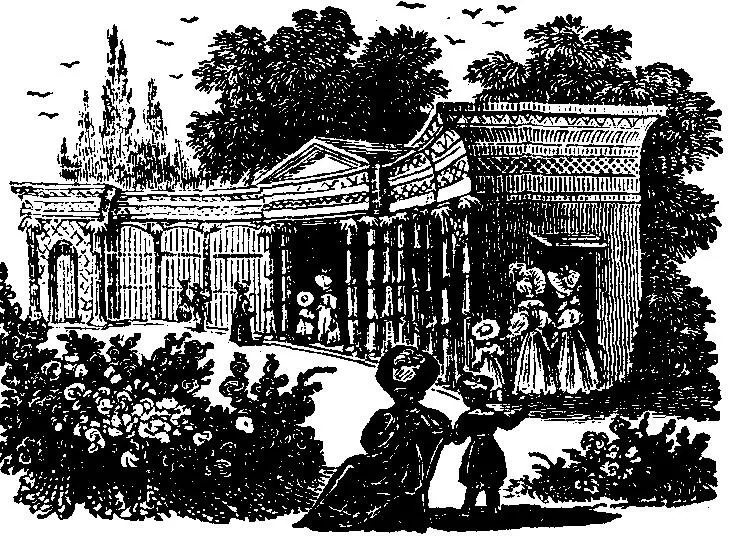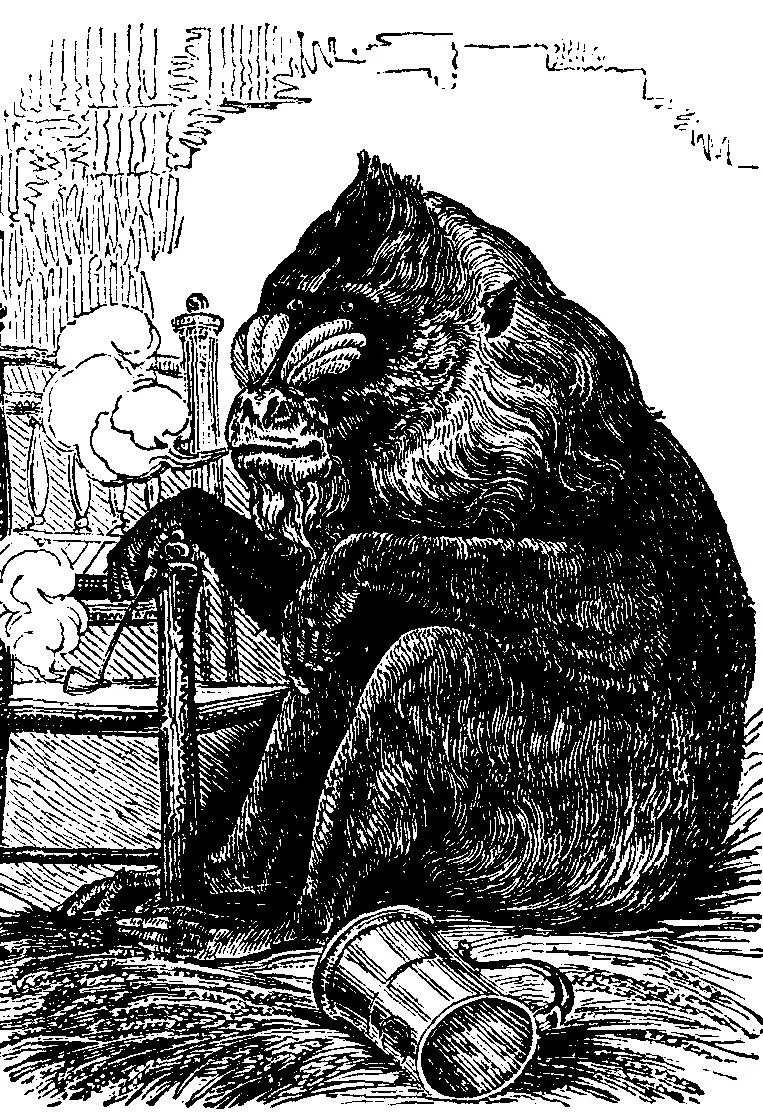Various - The Mirror of Literature, Amusement, and Instruction. Volume 19, No. 545, May 5, 1832
Здесь есть возможность читать онлайн «Various - The Mirror of Literature, Amusement, and Instruction. Volume 19, No. 545, May 5, 1832» — ознакомительный отрывок электронной книги совершенно бесплатно, а после прочтения отрывка купить полную версию. В некоторых случаях можно слушать аудио, скачать через торрент в формате fb2 и присутствует краткое содержание. Жанр: foreign_antique, periodic, Развлечения, foreign_edu, на английском языке. Описание произведения, (предисловие) а так же отзывы посетителей доступны на портале библиотеки ЛибКат.
- Название:The Mirror of Literature, Amusement, and Instruction. Volume 19, No. 545, May 5, 1832
- Автор:
- Жанр:
- Год:неизвестен
- ISBN:нет данных
- Рейтинг книги:3 / 5. Голосов: 1
-
Избранное:Добавить в избранное
- Отзывы:
-
Ваша оценка:
- 60
- 1
- 2
- 3
- 4
- 5
The Mirror of Literature, Amusement, and Instruction. Volume 19, No. 545, May 5, 1832: краткое содержание, описание и аннотация
Предлагаем к чтению аннотацию, описание, краткое содержание или предисловие (зависит от того, что написал сам автор книги «The Mirror of Literature, Amusement, and Instruction. Volume 19, No. 545, May 5, 1832»). Если вы не нашли необходимую информацию о книге — напишите в комментариях, мы постараемся отыскать её.
The Mirror of Literature, Amusement, and Instruction. Volume 19, No. 545, May 5, 1832 — читать онлайн ознакомительный отрывок
Ниже представлен текст книги, разбитый по страницам. Система сохранения места последней прочитанной страницы, позволяет с удобством читать онлайн бесплатно книгу «The Mirror of Literature, Amusement, and Instruction. Volume 19, No. 545, May 5, 1832», без необходимости каждый раз заново искать на чём Вы остановились. Поставьте закладку, и сможете в любой момент перейти на страницу, на которой закончили чтение.
Интервал:
Закладка:
Various
The Mirror of Literature, Amusement, and Instruction / Volume 19, No. 545, May 5, 1832
ZOOLOGICAL GARDENS, REGENTS'S PARK

Emu Enclosure

Pelican Enclosure

Aviary for Small Birds
Our strolls to this scene of intellectual amusement, (or "the gardens with a long name," as Lord Mulgrave's new heroine naively calls them,) are neither few nor far between. The acquaintance is of some standing, since The Mirror was the first journal that contained any pictorial representation of these Gardens, or any connected notice of the animals. 1 1 The Literary Gazette first published the Ground Plan of the Zoological Gardens, from a lithograph circulated among the members, towards the close of the year 1827. In seeking to do ourselves justice, we must not forget others. Our first Engraving, a Bird's Eye View of the Gardens from an original sketch, appeared in No. 330, of The Mirror , September 6, 1828.
At that time the Society had not published their "List," and our twopenny guide was common in the hands of visiters. We do not ask for the thanks of the Council in contributing to their annual receipts, now usually amounting to £10,000.: we were studying the interest of our readers, which uniformly brings its own reward. The first of the present illustrations is the Emu Enclosure , in the old Garden. Several broods of Emus have been reared by the Society at their Farm at Kingston Hill; and some of the year's birds are usually exhibited here. Next is the Pelican Enclosure , containing a house of mimic rock-work, and a capacious tank of water, the favourite element of the Pelican. One pair in mature plumage, and a second pair, supposed to be the young of the same species, are exhibited. The third Cut is the Aviary for small and middle-sized birds , at the north-eastern corner of the Garden. Here are kept various British Birds, as the different species of Crows and Song Birds. The bamboo ornaments of the building are not, therefore, of the appropriate character that we so much admire elsewhere in the Gardens.

"Happy Jerry"
The individual with this felicitous soubriquet , was a specimen of the great Mandrill Baboon, in its adult state, the Papio Maimon of Geoffrey, and the Cynocephalus Maimon of Desmarest. It is a native of the Gold Coast and Guinea, in Africa, where whole droves of them often plunder the orchards and vineyards. Their colours are greyish brown, inclining to olive above; the cheeks are blue and furrowed, and the chin has a sharp-pointed orange beard; the nose grows red, especially towards the end, where it becomes of a bright scarlet. Such are, however, only the colours of the adult animal; the young differs materially, on which account it has been considered by naturalists as a distinct species.
Jerry is now a member of death's "antic court," but his necrology may be interesting to the reader. Mr. Cross describes him as "from on board a slave vessel that had been captured off the Gold Coast, in the year 1815," when he was supposed to be three years old. He was landed at Bristol, and was there purchased by the proprietor of a travelling menagerie, who kept him for some years, and taught him the various accomplishments he after excelled in, as sitting in a chair, smoking, drinking grog, &c.; probably he required but little tuition in the latter; since we find a fondness for fermented liquors numbered among his habits by the biographers of his species. In 1828, Jerry was purchased by Mr. Cross, and exhibited at the King's Mews, when he appeared in full vigour, and attracted a large number of daily visitors. He was fed daily from the table of his owner, and almost made a parlour guest; taking tea, toast, bread and butter, soup, boiled and roast meats, vegetables, pastry, &c., with as much gout as any member of a club in his vicinity. In 1829, his eccentricities reached the royal ear at Windsor, and George the Fourth, (whose partiality to exotics , animate or inanimate, was well known,) sent an "express command" that Jerry should attend at the Castle. The invitations of royalty are always undeclinable, and Jerry obeyed accordingly. The King was much amused with his visiter, and, says our informant, "his Majesty was delighted at seeing him eat the state dinner, consisting of venison, &c., which had been prepared for him." 2 2 This reminds us of the attachment of the late Duke of Norfolk to his dogs. They were admitted to the apartment in which his Grace dined; and he often selected the fine cuts from joints at table, and threw the pieces to the curs upon the polished oak floors of Aruudel Castle.
Thus, Jerry was not in the parlous state described by Touchstone: he was not damned, like the poor shepherd: he had been to court. He had also learnt good and gallant manners. He recognised many of his frequent visiters, and if any female among them was laid hold of, in his presence, he would bristle with rage, strike the bars of his cage with tremendous force, and violently gnash his teeth at the ungallant offender.
In the autumn of 1831, Jerry's health began to decline, and he was accordingly removed from Charing Cross to the suburban salubrity of the Surrey Zoological Gardens. All was of no avail: though, as a biographer would say of a nobler animal, every remedy was tried to restore him to health. Life's fitful fever was well nigh over with him, and in the month of December last—he died. His body was opened and examined, when it appeared that his death was through old age; and, although he had been a free liver, and, as Mr. Cross facetely observes, "was not a member of a Temperance Society," his internal organization did not seem to have suffered in the way usually consequent upon hard drinking. Perhaps a few ascetic advocates of cant and care-wearing abstinence will think that we ought to conceal this exceptionable fact, lest Jerry's example should be more frequently followed. Justice demands otherwise; and as the biographers of old tell us that Alexander the Great died of hard-drinking, so ought we to record that Happy Jerry's life was not shortened by the imperial propensity: in this case, the monkey has beat the man: proverbially, the man beats the monkey. Jerry had, however, his share of ailment: he had been a martyr to that love-pain, the tooth-ache; several of his large molar teeth being entirely decayed. This circumstance accounted for the gloomy appearance he would sometimes put on, and his covering his head with his hands, and laying it in his chair. Poor fellow! we could have sympathized with him from our very hearts—we mean teeth. Jerry's remains have been carefully embalmed, (we hope in his favourite spirit,) and are now at the Surrey Gardens; where the arrival of a living congener is daily expected. Meanwhile, will nobody write the hic jacet of the deceased? or no publisher engage for his reminiscences? Mr. Cross would probably supply the skeleton—of the memoir—not of his poor dead Jerry. What tales could he have told of the slave-stricken people of the Gold Coast, what horrors of the slave-ship whence he was taken, what a fine graphic picture of his voyage, and his travels in England, à la Prince Puckler Muskau , not forgetting his visit to Windsor Castle.
Читать дальшеИнтервал:
Закладка:
Похожие книги на «The Mirror of Literature, Amusement, and Instruction. Volume 19, No. 545, May 5, 1832»
Представляем Вашему вниманию похожие книги на «The Mirror of Literature, Amusement, and Instruction. Volume 19, No. 545, May 5, 1832» списком для выбора. Мы отобрали схожую по названию и смыслу литературу в надежде предоставить читателям больше вариантов отыскать новые, интересные, ещё непрочитанные произведения.
Обсуждение, отзывы о книге «The Mirror of Literature, Amusement, and Instruction. Volume 19, No. 545, May 5, 1832» и просто собственные мнения читателей. Оставьте ваши комментарии, напишите, что Вы думаете о произведении, его смысле или главных героях. Укажите что конкретно понравилось, а что нет, и почему Вы так считаете.












